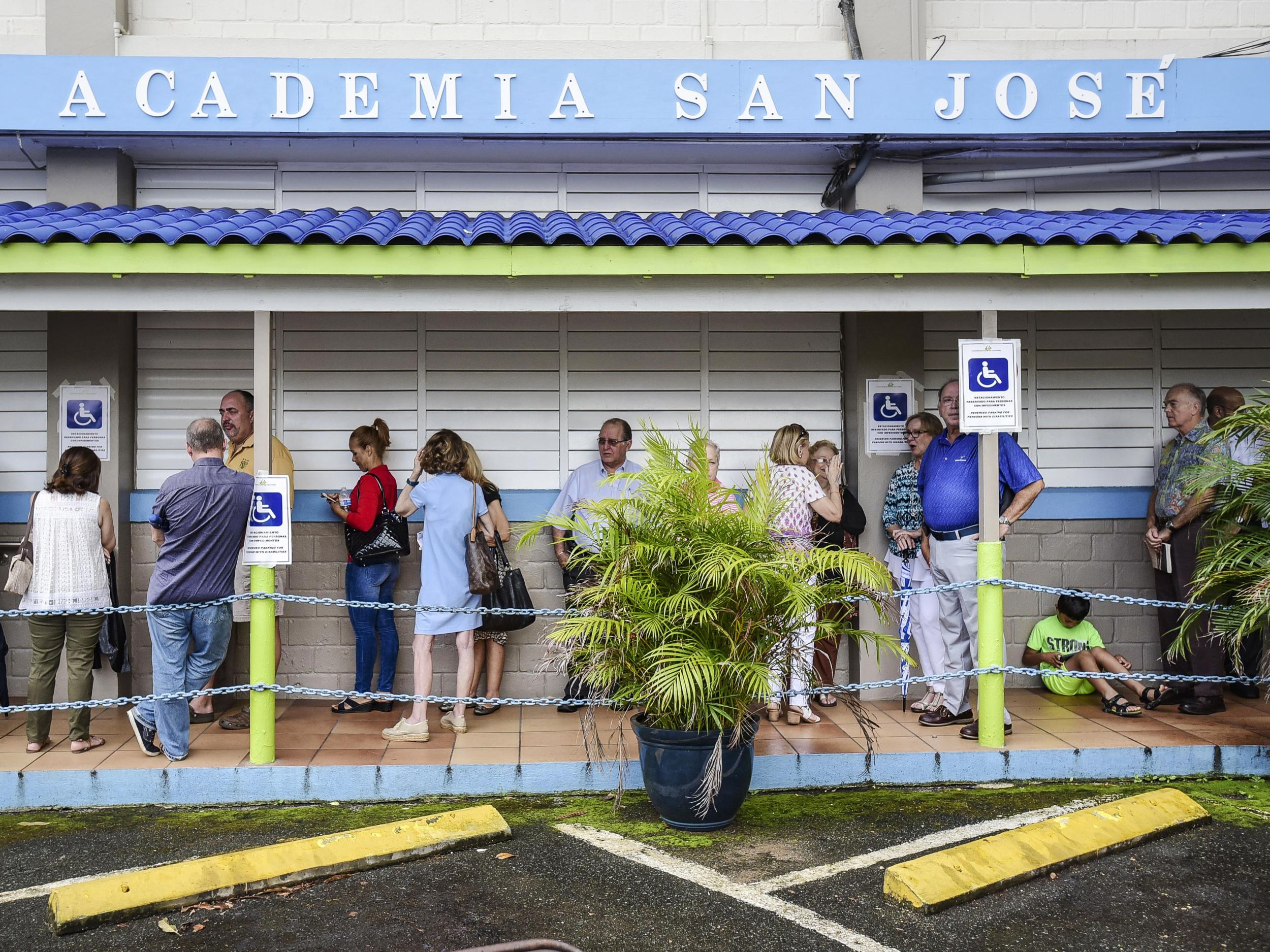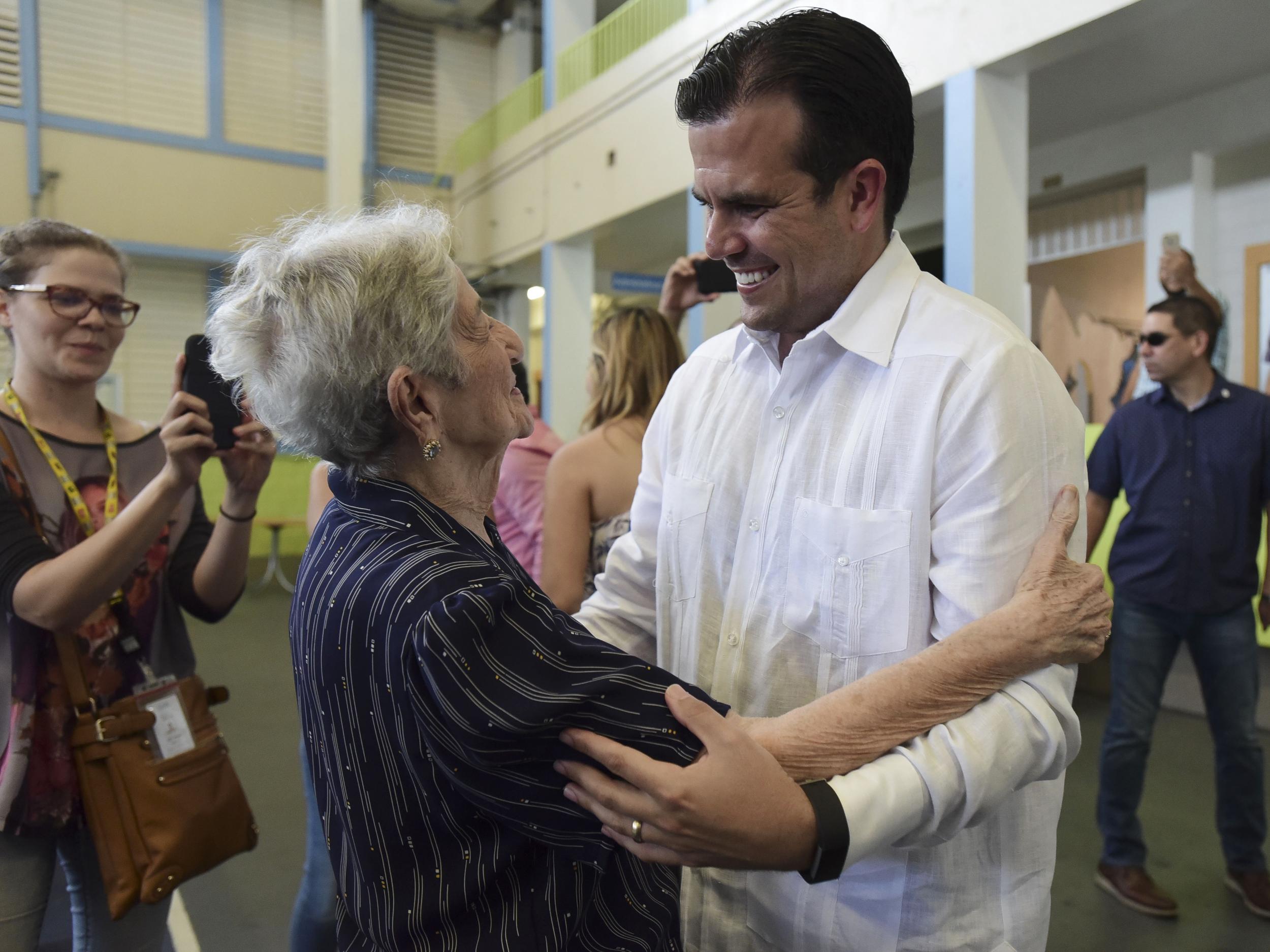Puerto Rico referendum backs calls for island to become 51st US state
Participation rate low at nearly 23 per cent with roughly 2.26 million registered voters

Your support helps us to tell the story
From reproductive rights to climate change to Big Tech, The Independent is on the ground when the story is developing. Whether it's investigating the financials of Elon Musk's pro-Trump PAC or producing our latest documentary, 'The A Word', which shines a light on the American women fighting for reproductive rights, we know how important it is to parse out the facts from the messaging.
At such a critical moment in US history, we need reporters on the ground. Your donation allows us to keep sending journalists to speak to both sides of the story.
The Independent is trusted by Americans across the entire political spectrum. And unlike many other quality news outlets, we choose not to lock Americans out of our reporting and analysis with paywalls. We believe quality journalism should be available to everyone, paid for by those who can afford it.
Your support makes all the difference.Puerto Rico's voters have overwhelmingly chosen for the territory to become the 51st US state in a non-binding referendum, the island's governor said.
Ricardo Rossello said that voters have sent a strong and clear message to the US Congress and the world.
However, a low turnout and a boycott by several opposition parties called into question the validity of the vote.
More than 480,000 votes were cast for statehood, more than 7,500 for free association or independence and more than 6,500 for independence, with roughly half of polling centres reporting.
The participation rate was low at nearly 23 per cent with roughly 2.26 million registered voters.
US Congress has final say on any changes to the US territory's political status, regardless of the referendum's final outcome.

Three Puerto Rican political parties that favour other options than statehood boycotted the vote, which took place amid an economic crisis that has triggered an exodus of islanders to the US mainland.
Puerto Rico Senate President Thomas Rivera Schatz vowed to push for statehood anyway.
“Congress never freely gave away statehood,” he said. “U.S. states had to fight for it.”
The referendum coincides with the 100th anniversary of the United States granting US citizenship to Puerto Ricans, though they are barred from voting in presidential elections and have only one congressional representative with limited voting powers.
Among those hoping Puerto Rico will become a state is Jose Alvarez, a 61-year-old businessman.
“Now is the moment to do it,” he said. “We've spent a lot of years working on a socioeconomic model that has not necessarily given us the answer.”
Many believe the island's territorial status has contributed to its 10-year economic recession, which has prompted nearly half a million Puerto Ricans to flee to the US mainland and was largely sparked by decades of heavy borrowing and the elimination of federal tax incentives.
Puerto Rico is exempt from the US federal income tax, but it still pays Social Security and Medicare and local taxes and receives less federal funding than US states.
Those inequalities and the ongoing crisis prompted 66-year-old Maria Quinones to vote for the first time in such a referendum, the fifth on Puerto Rico's status.
“We have to vote because things are not going well,” she said. “If we were a state, we would have the same rights.”
Quinones said many of her relatives are among the nearly half a million Puerto Ricans who have moved to the US mainland in the past decade to find a more affordable cost of living or jobs as the island of 3.4 million people struggles with a 12 per cent unemployment rate.
Those who remain behind have been hit with new taxes and higher utility bills on an island where food is 22 per cent more expensive than the US mainland and public services are 64 per cent more expensive.
David Aldarondo, a 31-year-old law student from Fishkill, New York, has lived in Puerto Rico for nearly a decade and said he believes independence is the best option.
“It would be rough,” he acknowledged. “Eventually, maybe not in my lifetime, but we could become a great nation.”
Those who oppose statehood worry the island will lose its cultural identity and warn that Puerto Rico will struggle even more financially because it will be forced to pay millions of dollars in federal taxes.
“The cost of statehood on the pocketbook of every citizen, every business, every industry will be devastating,” Carlos Delegado, secretary of the opposition Popular Democratic Party, told The Associated Press. “Whatever we might receive in additional federal funds will be cancelled by the amount of taxes the island will have to pay.”
His party also has noted that the US Justice Department has not backed the referendum.
A department spokesman told the AP that the agency has not reviewed or approved the ballot's language. Federal officials in April rejected an original version, in part because it did not offer the territory's current status as an option.
The administration of Gov. Rossello added it and sent the ballot back for review, but the department said it needed more time and asked that the vote be postponed, which it wasn't.
No clear majority emerged in the first three referendums on status, with voters almost evenly divided between statehood and the status quo.
During the last referendum in 2012, 54 per cent said they wanted a status change. Sixty-one percent who answered a second question said they favored statehood, but nearly half a million voters left that question blank, leading many to claim the results weren't legitimate.
Some statehood supporters on Sunday expressed dismay that certain voting centers appeared empty.
“We are worse off than I thought, in the sense that we don't give a damn what happens to this island,” said Jose Miranda, a retired TV and radio producer who lived 30 years in the U.S. mainland and is returning because he believes life is better over there.
Join our commenting forum
Join thought-provoking conversations, follow other Independent readers and see their replies
Comments